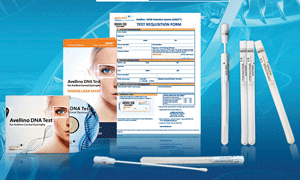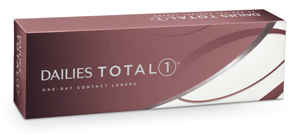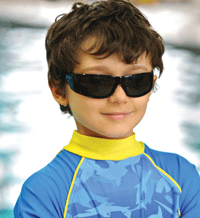Genetic Testing
Avellino Gene Detection System
The Avellino Gene Detection System (AGDS) Test enables patients and their physicians to make a more informed decision when considering vision correction surgery. With purported 100% accuracy, the test positively identifies the Avellino corneal dystrophy genetic mutation that puts carriers at high risk of experiencing eventual blindness as a result of refractive procedures such as LASIK, LASEK or PRK, the company says.

The AGDS Test involves a simple mouth swab from a patient’s cheek. The sample is then sent to Avellino’s certified molecular diagnostic testing facility. Within 24 to 48 hours, the results are provided to the physician to share with the patient.
Based on a negative result, patients are able to undergo the planned procedure with confidence. Individuals identified as positive for the genetic mutation will be advised against surgery and encouraged to take protective measures, such as minimizing exposure to UV light by wearing appropriate protective lenses, to help postpone the progression of ACD symptoms.
Visit
www.avellinolab
.com/us.
Contact Lenses
Dailies Total1
After more than a decade of product development, Alcon recently introduced its Dailies Total1 (delefilcon A) water gradient contact lenses to the US market. These daily disposables have a gradient design in both their material composition and water content, which enhances performance at the core and lens surface.
Dailies Total1 lenses are comprised of a highly breathable silicone hydrogel core, with a low water content of 33% that transitions to a hydrophilic surface gel comprised of more than 80% water content, approaching 100% water content at the outer surface, the company says.

Available in trial packs of five and retail packs of 30 and 90, the lenses have a diameter of 14.1mm, an 8.5mm base curve and a center thickness of 0.09mm at -3.00D. They are currently available with a power range of -0.50D to -6.00D (in 0.25D steps); and -6.50D to -10.00D (in 0.50D steps).
Visit
www.alcon.com.
Children's Sunglasses
Junior BanZ
With summer in full swing, it’s a good time to talk with your patients about the importance of sunglasses for children—who are more susceptible to absorbing UV radiation, because their eyes have less protective pigment than adults. A new addition to the Baby BanZ sunglasses collection, the Junior BanZ line is made for boys and girls ages four to 10.

JBanZ come with their own color-coordinated neoprene carrying case with a zipper clasp, as well as a removable neoprene strap for active kids.
Their flexible temples resist breakage, and the wraparound design adds extra protection from wind and debris for kids on the run, the company says.
Designed for the wear and tear of playground and after-school activities, JBanz also shield children’s eyes from harmful rays with 100% UVA/UVB protection.
Visit
www.banzworld.com.

